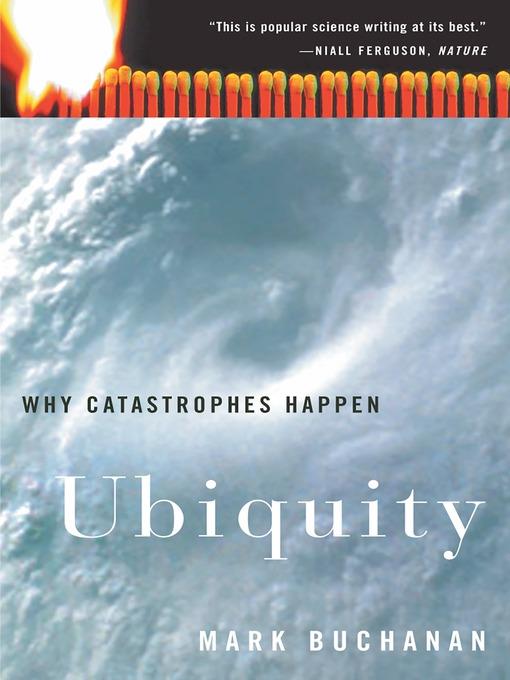
Ubiquity
Why Catastrophes Happen
کتاب های مرتبط
- اطلاعات
- نقد و بررسی
- دیدگاه کاربران
نقد و بررسی

September 10, 2001
Buchanan, an editor and writer for Nature
and New Scientist, proposes to apply so-called nonequilibrium physics to cataclysms in human history. This form of physics involves the study of systems in perpetual imbalance, a state that makes it possible for a small shock to trigger a disproportionately huge response. Buchanan thinks human beings are just such systems, and that the earth itself is another, and that their shared history—earthquakes, eclipsed economies, extinctions, etc.—reflects it. Particularly interesting is his chapter on revolutionary changes in intellectual ideas, in which he discusses a study quantifying "cataclysmic" shifts in thought by tracking citations in scientific papers. Buchanan allows how daunting a task it is to quantify history and acknowledges critics who say such an approach tempts oversimplification and overlooks the role of free will in human affairs. Buchanan notes, "It is at least a step toward greater understanding to recognize that the tumultuous course of humanity need not be the product of some deeply malignant human madness, but of ordinary human nature and simple mathematics," and thus finishes his book with questions rather than raw numbers.

October 15, 2001
An editor and writer for Nature and New Scientist who holds a Ph.D. in physics, Buchanan presents a clear and focused discussion of current subjects in theoretical physics, such as critical state, complexity theory or nonequilibrium physics, and power laws, to name just a few. He begins by explaining and illustrating key concepts and ideas, using evolution, magnets, and earthquake and forest fire prediction as examples. What makes the work unique, however, is Buchanan's ability not just to convey the concepts so clearly but to tie them to events in human history. Readers will be amazed at how much history replicates scientific processes. Buchanan ably illustrates the law of universality, making it easy to grasp how the laws of nature relate to patterns in world events. Highly recommended for large collections and for history of science collections. Michael D. Cramer, Raleigh, NC
Copyright 2001 Library Journal, LLC Used with permission.

September 1, 2001
When contemplating cataclysms of nature or human history, we tend to ascribe their occurrence to dramatic causes. Buchanan here presents an outlook opposing that propensity, arguing that tiny, unremarkable events will, from time to time, cause disastrous earthquakes, mass extinctions, stock-market collapses, forest fires, world wars--almost anything. A physicist, Buchanan takes his cue from colleagues who have studied, through computer-game-playing programs, the behavior of systems over time: one such program adds grain after grain to a sand pile in an attempt to explain the ensuing avalanches. The programmers have discerned that the digital pile exists in a perpetual "critical state," in which it is impossible to predict which additional grain will trigger a sand slide. Overall, the sand slides exhibit a pattern that "implies that large events are just magnified copies of smaller ones, and that they arise from the same kinds of causes." Human society similarly experiences unpredictable disruptions over history--or so Buchanan maintains in this able, well-researched presentation of a provocative theory.(Reprinted with permission of Booklist, copyright 2001, American Library Association.)

























دیدگاه کاربران